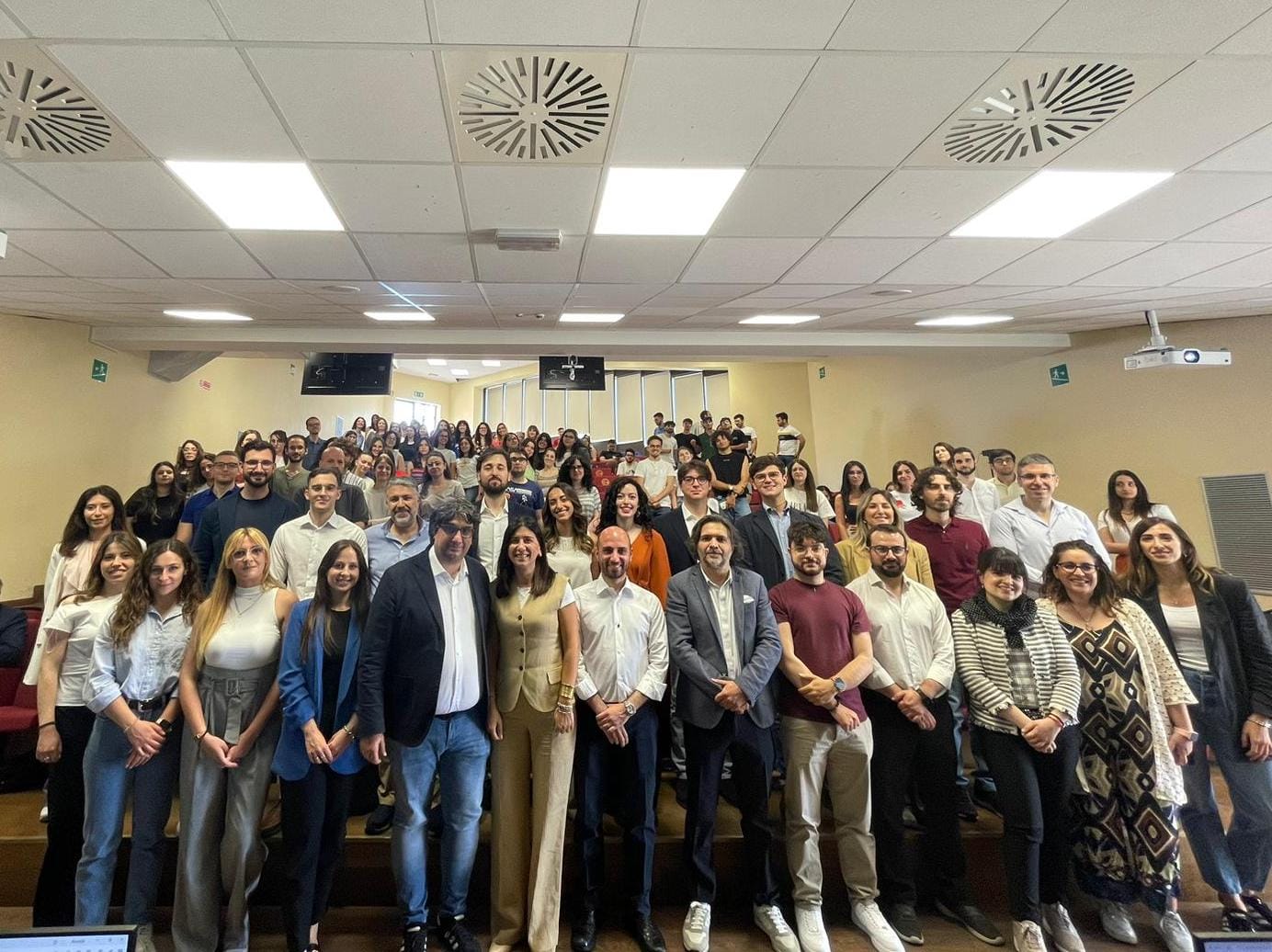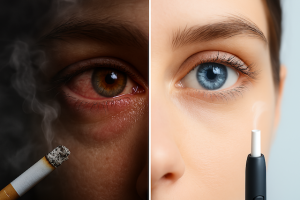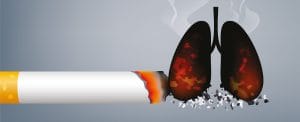Resident doctors, PhD students, young researchers, and masters students coordinated the CoEHAR annual meeting dedicated to the World No Tobacco Day 2024, sharing experiences from their own social contexts, including schools, universities, hospitals, and research laboratories.
Catania, May 30, 2024 – The World No Tobacco Day 2024 is committed to protecting young people and implementing the necessary strategies to create a smoke-free world.
“When we hear about ourselves, we sometimes feel that we are not represented for who we really are. Labels are imposed on us that do not always reflect our lifestyles. We have been rarely invited by institutions and members of the scientific community to express our thoughts on smoking addiction or on the use of smokeless devices. It is important, instead, to recognize that this challenge is not individual but collective and requires support and education in every area. Our proposal is not a mere intent but a promise of commitment to create a smoke-free future together,” this was the CoEHAR’s seminar opening lecture made on 30th May by Andrea Comisi, a medical student, who read a letter on behalf of the entire student community.
This year, the conference, directed by Prof. Riccardo Polosa and Prof. Giovanni Li Volti, respectively the founder and director of the Center for the acceleration of Harm Reduction at the Department of Clinical and Experimental Medicine of the University of Catania, changed its format, focusing its maximum attention on the opinions of young people. In front of an audience of over 250 students, who gathered in the Aula Magna of the Biological Tower, thanks to the collaboration of student associations and the Italian Anti-Smoking League, 21 speakers held the seminar, including young researchers, resident doctors, PhD and masters students.
“In line with the WHO guidelines, we aim to protect young people from smoking addiction but want to do so by listening directly to their opinions and needs,” explained Prof. Li Volti, who also committed to formalizing the contents of the debate in a shared document. “We will send the results of this discussion directly to the representatives of the Italian Ministry of Health,” he added, “to enable them to define public policy proposals in line with what has emerged so far.”
The CoEHAR seminar was divided into thematic areas to allow everyone to engage in an open and participatory debate. From clinical practice, testified by resident doctors in Emergency Medicine, to the debate on smoking as both a psychological and behavioral addiction, and the consequences it has on social relationships and couples. Not forgetting the significant support that new technologies, such as artificial intelligence, are providing in finding effective strategies for cessation. Other areas of discussion included: the approach doctors should take with smoking patients, the impact of smoking on health and physical appearance, the right diet to face the craving, the influence of social contexts, the smoking-related infectious diseases, the use of alternative products, the effectiveness of harm reduction strategies, and finally, the need for more comprehensive information and fewer fake news and biases in scientific research.
“Tobacco harm reduction research,” concluded Prof. Polosa, “sees hundreds of young people engaged in various disciplines, from technological innovation to clinical practice. Excellence and talents from Catania are moving around the world to export and disseminate the results of the research projects coordinated by CoEHAR.”




